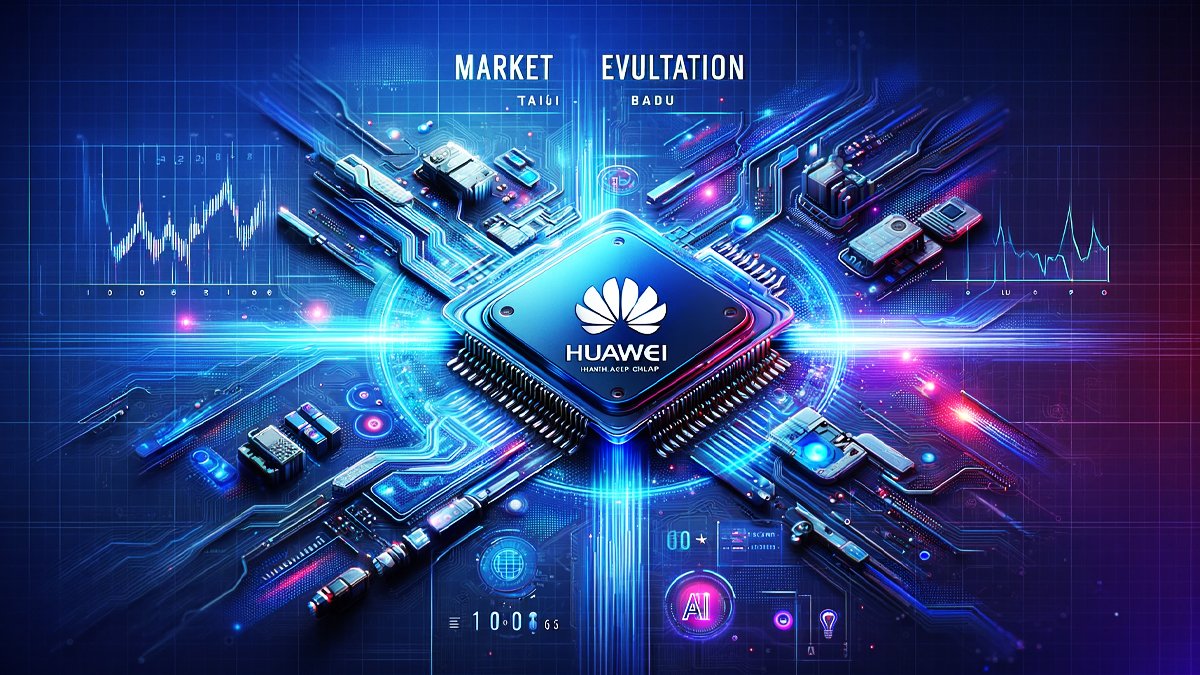According to Reuters, Huawei has secured a major order for AI chips from the Chinese technology giant, Baidu. The AI chip sector is experiencing exponential growth in the country, attracting the attention of several major industry players. According to some estimates, the Chinese market for dedicated AI chips is valued at around 7 billion dollars. In this competitive context, Huawei is looking to strengthen its position in the market by offering an innovative range of products, called Ascend AI.
Huawei’s ambitions in the face of Nvidia’s competition
This new series of chips has been developed to compete with the offerings of other industry giants, such as Nvidia. Indeed, the flagship product of the Ascend AI range, the 910B, is designed to compete with Nvidia’s A100 chip, launched in 2020, as well as the H100 chip launched in 2022. Huawei has been trying to regain ground on Nvidia since the launch of its Ascend 910 chip in 2019, which offered a 7 nm manufacturing process. More recently, unofficial mentions of the new 910B processor have begun to circulate in Chinese media.
Documents related to the Ascend 910B, such as driver update guides and firmware, reportedly appeared last August on Huawei’s website. It is also worth noting that Baidu is said to have ordered 1,600 of these chips for use on 200 servers last August. This partnership between Huawei and Baidu could represent a true springboard for the development of new AI solutions in the country.
The restrictions imposed by Washington impact the market
It should be mentioned that this vast contract between Huawei and Baidu was concluded before Washington tightened restrictions on chip exports to China, including those from the American giant Nvidia. As part of its efforts to create a solid computing base, Huawei plans to offer the world an alternative solution to Nvidia’s solutions, which are currently dominant in the field of artificial intelligence.
The development of local technologies in the face of the American embargo
Despite the embargo imposed by the United States in 2018, which hampered its international expansion, Huawei continues to develop in the local market with the support of the Chinese government, which constantly encourages reducing dependence on Western suppliers for the development of artificial intelligence and semiconductors.
The Chinese manufacturer had already launched its Ascend 910 chip in 2018, with the ambition to offer a recognized range for businesses. However, the new Ascend 910B chip seems promising in many ways, offering performance similar to that of the Nvidia A100.
Collaborations and strategic alliances in the sector
Other collaborations among market players are also noteworthy: for example, Nvidia announced last October a partnership with Foxconn, the largest electronics manufacturer in China, to create factories dedicated to artificial intelligence. Such alliances show that the sector is undergoing significant changes and that new challenges are looming on the horizon for all involved players.
Conclusion: Huawei gains a significant advantage over its competitors
The contract signed between Huawei and Baidu showcases both the dynamism of the AI chip industry and the desire to develop local technologies to reduce international dependencies. It will be interesting to follow the future developments of this strategic alliance to understand how it shapes the competitive landscape and stimulates innovation in the field of artificial intelligence.






